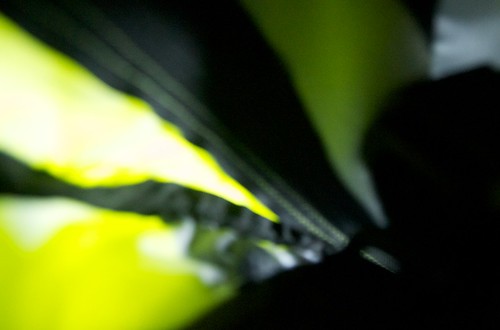
My speech pattern is consciously different when I'm talking to my car. Whether I'm on a hands-free phone call or asking the car to do something via the little Linguatronic button, I tend to speak slightly louder and for the car's system I also have.a.more.clipped.style. [NAVIGATION ON. DESTINATION HOME.]
It's the same this year for NaNoWriMo. I've been experimenting with a small dictation machine that came as part of a recent software update - a thing called Voice Tracer which is simply a digital recorder which can plug into the computer to offload the dictations. It has a speech start/stop feature too, so if I stop talking then the recording will stop until I start again. I notice the memory of the unit says its good for 49 days, although I expect the battery would run out before I reached that landmark.
I know that the iPhone has a recorder too, and my one probably has at least 3 recording type apps, but there is a simplicity to the single-purpose device which is quite appealing.

The connection to the USB works well too, straight into Dragon Dictate, which has a transcribe facility that takes my spoken words and with surprisingly few mistakes converts them into text. There's probably less typos than I make as well. I didn't even really teach this latest version of Dragon any of my speech either, so it must have clever processing. I tend to make 20-30 minute recordings, which take a few minutes each time to convert into pretty decently interpreted text.
It's another situation where I speak...slowly...when...I'm dictating. There's two reasons for this: I have to think about what I'm trying to put into the story and also to decide whether to use the ability to add in punctuation automatically. FULL STOP. NEW LINE. NEW LINE.
I'm not so good at those punctuation controls, and although I could use the same dictation directly into the computer (without the recorder, but with on-screen prompts), there's something about being able to get away from the screen completely. Some people will be using typewriters, pencils and paper, or glass writing pens with multi-coloured inks for their NaNoWriMo attempts.
I can understand that it's also about reducing the distractions from the technology. I'm hoping my own 'speak the story out loud' technique will work just as well.
